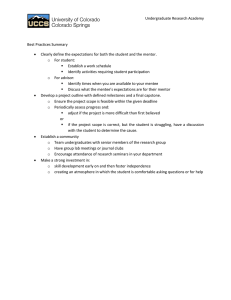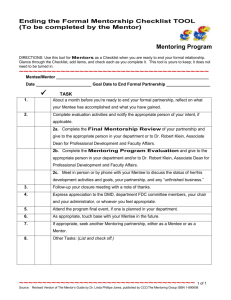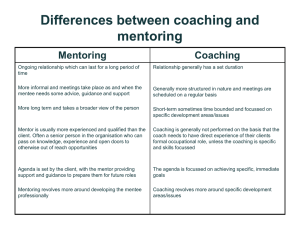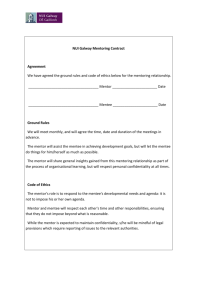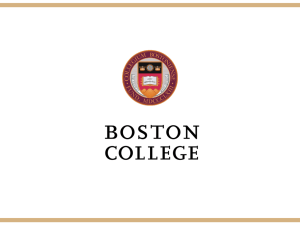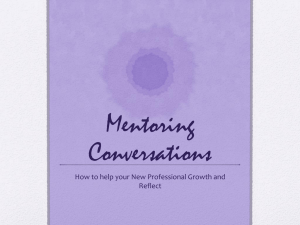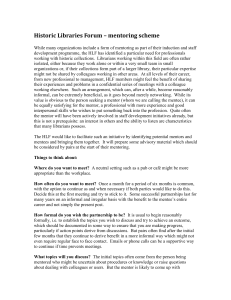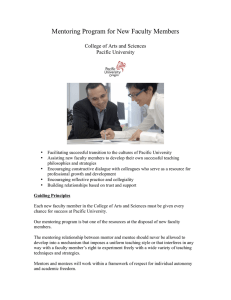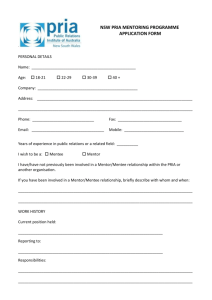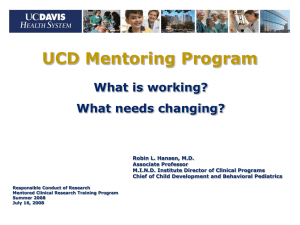Four Stage Model of Success Description
advertisement
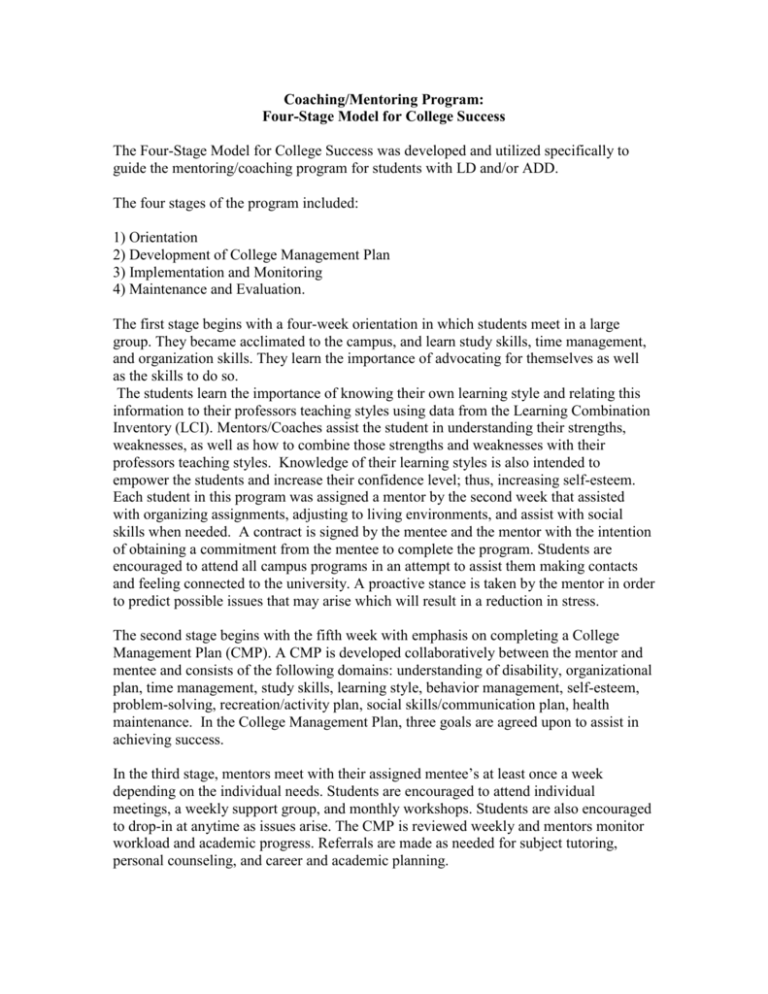
Coaching/Mentoring Program: Four-Stage Model for College Success The Four-Stage Model for College Success was developed and utilized specifically to guide the mentoring/coaching program for students with LD and/or ADD. The four stages of the program included: 1) Orientation 2) Development of College Management Plan 3) Implementation and Monitoring 4) Maintenance and Evaluation. The first stage begins with a four-week orientation in which students meet in a large group. They became acclimated to the campus, and learn study skills, time management, and organization skills. They learn the importance of advocating for themselves as well as the skills to do so. The students learn the importance of knowing their own learning style and relating this information to their professors teaching styles using data from the Learning Combination Inventory (LCI). Mentors/Coaches assist the student in understanding their strengths, weaknesses, as well as how to combine those strengths and weaknesses with their professors teaching styles. Knowledge of their learning styles is also intended to empower the students and increase their confidence level; thus, increasing self-esteem. Each student in this program was assigned a mentor by the second week that assisted with organizing assignments, adjusting to living environments, and assist with social skills when needed. A contract is signed by the mentee and the mentor with the intention of obtaining a commitment from the mentee to complete the program. Students are encouraged to attend all campus programs in an attempt to assist them making contacts and feeling connected to the university. A proactive stance is taken by the mentor in order to predict possible issues that may arise which will result in a reduction in stress. The second stage begins with the fifth week with emphasis on completing a College Management Plan (CMP). A CMP is developed collaboratively between the mentor and mentee and consists of the following domains: understanding of disability, organizational plan, time management, study skills, learning style, behavior management, self-esteem, problem-solving, recreation/activity plan, social skills/communication plan, health maintenance. In the College Management Plan, three goals are agreed upon to assist in achieving success. In the third stage, mentors meet with their assigned mentee’s at least once a week depending on the individual needs. Students are encouraged to attend individual meetings, a weekly support group, and monthly workshops. Students are also encouraged to drop-in at anytime as issues arise. The CMP is reviewed weekly and mentors monitor workload and academic progress. Referrals are made as needed for subject tutoring, personal counseling, and career and academic planning. The fourth stage is the maintenance phase, which occurs after the first semester for most students. For other students who had greater needs, the support continued as needed. With the on-going evaluation of progress, the level of support needed to assist the students in being successful is discovered. The goal in this stage is to empower the student to become independent and benefit from an improved style of life and academic success. Results of this program indicate that the overall college experience of students with disabilities who participated in the mentoring/coaching program was more positive and effective as compared to those who did not participate in the program. Results indicate that students who participated in the program experienced higher self-esteem, reduced anxiety and an efficient transition to college. They also experienced and increase in completed classes, higher GPA’s and retention.
